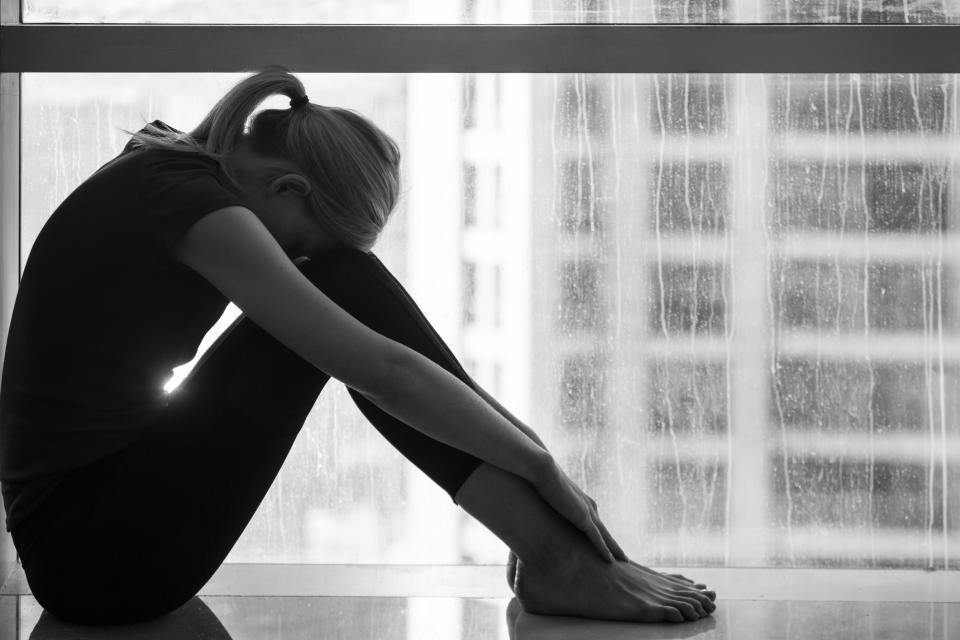Coronavirus: Charity says domestic abuse calls are up 25% since lockdown

Refuge has revealed it has seen a 25% increase in calls and online requests for help since the UK was put into lockdown to help curb the spread of coronavirus.
The National Domestic Abuse helpline, which is run by the charity, received hundreds more calls last week compared to two weeks earlier.
According to Refuge, visits to the National Domestic Abuse helpline website for information were also 150% higher than during the last week in February.
Campaigners have warned that though the restrictions are designed to help halt the spread of the virus, they could heighten domestic tensions and cut off escape routes.
The UN Secretary-General has also spoken out about domestic abuse concerns during the coronavirus pandemic when more people are confined to their homes.
Latest coronavirus news, updates and advice
Live: Follow all the latest updates from the UK and around the world
Fact-checker: The number of COVID-19 cases in your local area
Explained: Symptoms, latest advice and how it compares to the flu
It is believed that the combination of economic and social stresses brought on by the COVID-19 pandemic, and social-distancing restrictions, have contributed to the increase in the numbers of women and girls facing abuse.
However, even before the spread of coronavirus, statistics revealed that a third of women around the world experienced some form of violence in their lives.
Peace is not just the absence of war. Many women under lockdown for #COVID19 face violence where they should be safest: in their own homes.
Today I appeal for peace in homes around the world.
I urge all governments to put women’s safety first as they respond to the pandemic. pic.twitter.com/PjDUTrMb9v— António Guterres (@antonioguterres) April 6, 2020
Sandra Horley, chief executive of Refuge said lockdown “has the potential to aggravate pre-existing abusive behaviours”.
“While in lockdown or self-isolation, women and children are likely to be spending concentrated periods of time with perpetrators, potentially escalating the threat of domestic abuse and further restricting their freedom,” she explains.
“Domestic abuse isn't always physical – it's a pattern of controlling, threatening and coercive behaviour, which can also be emotional, economic, psychological or sexual.”
She went on to say that isolation could be used as a means of control by perpetrators of domestic abuse.
“Abuse is a choice a perpetrator makes, and isolation is already used by many perpetrators as a tool of control.”
Read more: New York tiger tests positive for coronavirus
The charity is concerned this period of lockdown could shrink the window of opportunity for those suffering to seek help.
“We know that ordinarily the window of opportunity for women with abusive partners to make a call and seek help is often very limited. Now, it is likely that window has become even smaller,” Horley said last week.
To help, the charity has released an online guide for survivors during these uncertain times.

Horley was also keen to reassure women and men that despite technological challenges, Refuge is able to continue its life-saving work whilst adhering to the COVID-19 restrictions on movement.
“We want to reassure women that our Helpline is continuing to run 24 hours a day, 7 days a week, and that it is free, and confidential.
“Domestic abuse is much more than physical violence and we want all women who are experiencing any form of abuse – whether that is physical, technological, economic, sexual, or coercive control – to know we are here. Our message is simple: help exists, you are not alone.”
That’s a sentiment echoed by the national police lead for domestic abuse who, on Saturday, urged people to continue seeking support and reporting incidents.
“It is important to recognise that for some people home is not a safe place,” Deputy Chief Constable Louisa Rolfe said.
“For those already living with domestic abuse these restrictions will have left them fearful of being even further isolated and left at home with their abuser. They may feel like there is nowhere to go for help and are now unable to meet the family and friends who act as a support network.
“It’s really important people know there is still support and help available.”
Rolfe said police could still respond to 999 calls and that people unable to speak can press 55 to ensure a call is treated as an emergency.

Where to get help
Any woman experiencing abuse should call the National Domestic Abuse Helpline, run by Refuge, on 0808 2000 247.
If you are unable to call, then you can visit www.nationaldahelpline.org.uk and fill in an online form, requesting a safe time to be called back.
This online method of accessing support is especially important now when telephoning for help may be more difficult.
Women can also receive automated guidance via our chatbot on how to secure their devices https://www.refuge.org.uk/our-work/our-services/tech-abuse-empowerment-service/.
The Respect phoneline is an anonymous and confidential helpline for men and women who are worried they may harm their partners and families. It can be contacted on 0808 8024040 or online.
The government website has a list of support and help available for those facing domestic abuse during the coronavirus outbreak.
In an emergency, call 999.



